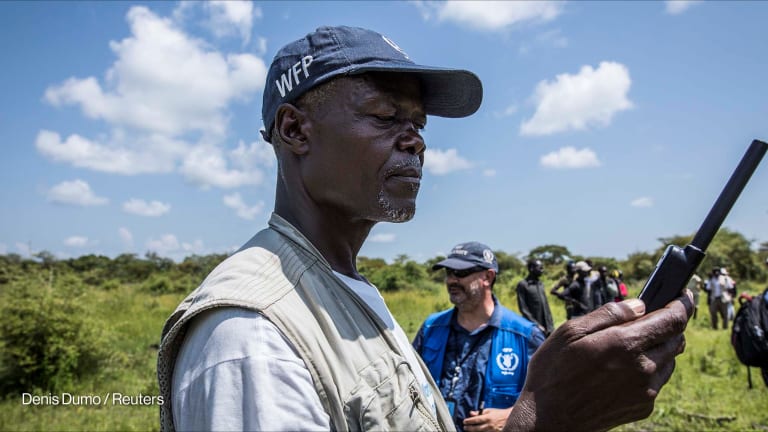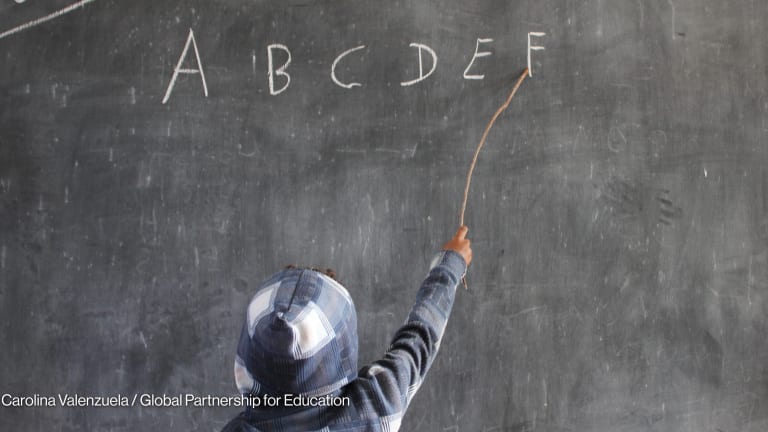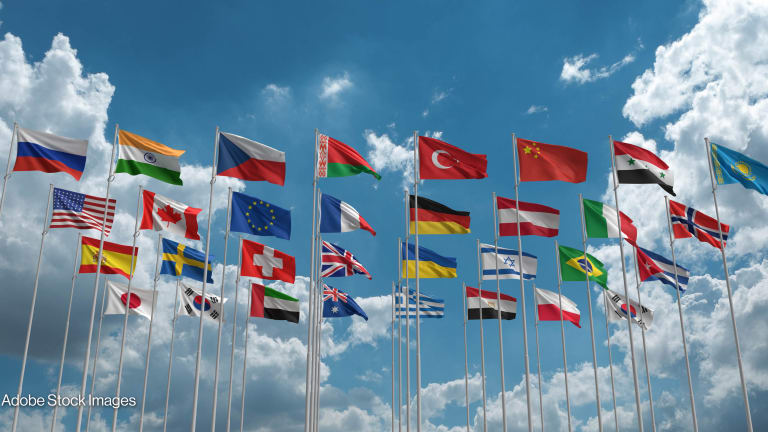
In a rapidly changing world dominated by a rise in crises that are causing devastating impacts, we need urgent reform of the humanitarian financing system and the way it is governed. We must go beyond reform within existing structures, with such attempts to date struggling to deliver aspirations. We are at a critical juncture for the future of international cooperation, where we must choose between the status quo or attempt something that can set us on a different, better course.
A solution being put on the table is the creation of a common humanitarian fund. While radical, there is a growing appetite for this type of thinking, with similarly innovative ideas gaining traction in the development space.
A perfect storm: Soaring need and a flawed financing system
Development Initiatives has been tracking the global humanitarian financing system for 22 years. The latest annual Global Humanitarian Assistance report shows the sheer scale of the challenge faced by the humanitarian system.
The world has struggled for years to fund growing global humanitarian needs and we now face a situation where figures from 2021 show an estimated 306 million people in need of humanitarian assistance — a 46% leap from before the pandemic — while global humanitarian funding grew by just 2.5%, and United Nations coordinated appeals for humanitarian response raised only 56% of the sums required.
Fundamentally global governance should be about genuine international cooperation, not enabling a few countries to dictate the future of our world.
—The impacts of the war in Ukraine are the latest illustration of the fragility of the humanitarian financing system and will mean the already dire global humanitarian situation is set to worsen.
In addition to the rise in oil, energy, and cereal prices, which have a direct impact on the most vulnerable populations, there are huge concerns about our ability to support the humanitarian effects of the war. This new emergency increases the amount of funding needed to meet new needs in Ukraine and neighboring countries, but also across the globe, in regions depending on Ukrainian grain.
In that context, there is a great risk that donors withdraw their support from existing crises, of which we are seeing a growing number lasting five years or more. This is the case in the Democratic Republic of Congo and many other emergencies in Africa, that fail to attract the same levels of attention, support, and resources.
In 2021, 97% of public international resources to directly respond to humanitarian crises have voluntarily come from just 20 countries. What’s more, the reactive nature of fundraising when a crisis hits rather than having the funds available up front, means a critical window is often missed for anticipatory financing to be deployed to save lives and mitigate the most severe crisis impacts.
The situation is unsustainable and if current events are not enough to prompt a radical shake up of the system, nothing will be. A common humanitarian fund has the potential to finally address the challenges we face.
A humanitarian fund
The main objective of reform of the humanitarian funding system must be to preserve relief action and the universal principles that underpin its legitimacy. It must also be based on an agreement that the burden of humanitarian aid, as referred to by Janez Lenarčič, the European commissioner for humanitarian aid and crisis response, is our global burden to bear.
This means it should not be borne by a limited number of countries. Crucially, reforms must not only deliver the full amount of money needed to respond to humanitarian crises but also increase the impact of the funding available in the way it is delivered and prevent misuse or poor use of funds. This is the only way we can truly and sustainably address the needs of people impacted by crisis.
Such a system is possible. It would require U.N. member states to move away from the current approach of voluntary contributions to mandatory contributions.
On the one hand, the U.N. General Assembly could push and vote on mandatory humanitarian contributions based on each country’s gross national income, meaning that high-income states would therefore all chip in. The entire humanitarian budget requested by the U.N. for 2020 — $39 billion — represented 0.07% of the 57 highest-income countries' GNI according to World Bank data.
In other words, if each of these countries contributed 0.07% of its GNI, then all the money needed to address international humanitarian crises would be available. The EU already implements a contribution rule, through a share of the overall EU budget to coordinate and strengthen emergency aid humanitarian aid, as it did for the crisis in Ukraine.
Economists are also calling for a reform of world taxation, where the wealthiest individuals would contribute to the overall humanitarian budget.
The distribution of these sums would need to be entrusted to an entity that is not governed by member states like the current U.N. model. It would protect humanitarian action from politicization and avoid the power struggles that prevail within the U.N. Security Council.
Additionally, it would address concerns about aid being a form of soft power from the Western donor countries. This would become a “common humanitarian fund” that pools all contributions, prevents earmarked donations, ensures independence of decision-making, and gets funding to crises at speed.
At a time when the Sustainable Development Goals hang precariously in the balance, the intimate links between stability, security, and development mean this approach is in the interests of everyone seeking global prosperity.
While some may be skeptical about whether such reforms are possible, there is an unprecedented appetite for radical change.
With the COVID-19 pandemic mobilizing calls for building back better, people are questioning the status quo and acknowledging that the post-war systems and institutions we rely on now exist in a very different era.
New thinking around global financing is gaining momentum. For instance, participants at the European Humanitarian Summit in Brussels in March 2022, which included commissioner Lenarčič, stated intentions to expand the number of contributing donor countries in the EU context.
Similarly, Global Public Investment calls for a new system based on principles of “all contribute, all benefit and all decide” — that aligns with the concept of a common humanitarian fund. The idea that changing governance so high-income nations do not hold all the power is the only viable option if we want a financing architecture that truly serves the global population and our common interests.
Fundamentally global governance should be about genuine international cooperation, not enabling a few countries to dictate the future of our world. While there are obvious challenges, it is a system rooted in fairness, and if it can be made to work, has the potential to create the stability, security, and prosperity we all seek.










